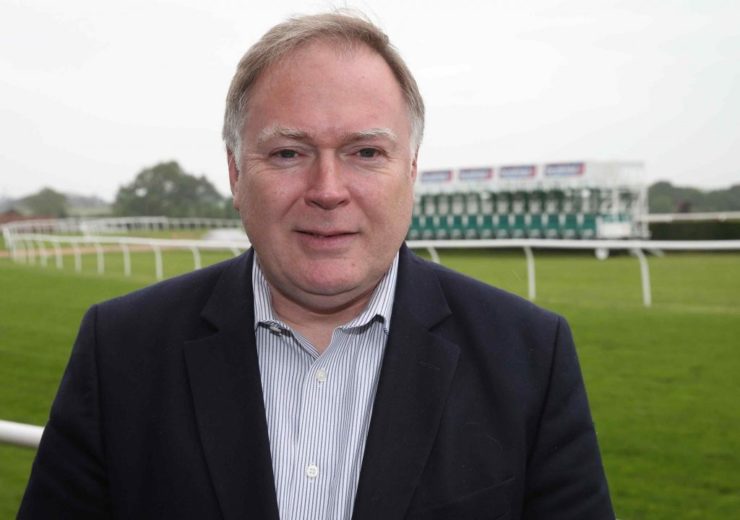For the past ten years, Simon Bazalgette has been the top boss at The Jockey Club, the organisation that runs Grand National venue Aintree Racecourse

The Jockey Club CEO Simon Bazalgette
With up to 600 million people expected to tune into the Grand National this weekend, Simon Bazalgette could be forgiven for being a touch nervous.
As the man who runs the racecourse hosting the world’s biggest horse racing spectacle, the 57-year-old has plenty of responsibility.
But the 172nd year of the landmark event shouldn’t faze someone described as one of the most influential people in British sport, as Mr Bazalgette has been CEO of The Jockey Club since 2008.
British racing’s largest commercial body runs Liverpool’s Aintree Racecourse – where the three-day Grand National Festival takes place from today until the world-famous finale race attended by 150,000 spectators on Saturday (6 April) – as well as other prestigious tracks including Cheltenham, Epsom and Newmarket.
Ahead of the Grand National, we profile Mr Bazalgette’s career to date.
Simon Bazalgette’s career – from accountant to Grand National venue top boss
Mr Bazalgette was born in Aylesbury, Buckinghamshire, in 1962. He attended Thames Valley Grammar School, in Twickenham, and went on to study maths at Warwick University.
The father of four boys now resides in West London and, alongside his horse racing interests, is a keen musician.
For ten years, he was an accountant at global professional services firm KPMG after joining in 1984, and was later promoted to a chartered accountant specialising in media and entertainment.

He left the post in 1993 after acquiring a job at premium audio service Music Choice Europe, a joint venture between BSkyB, Time Warner and Sony.
Six years later, he became CEO of Music Choice Europe, which is now part of Stingray Music International, and led its flotation in 2000.
Mr Bazalgette left in 2003 and became chief executive of TV channel Racing UK’s umbrella organisation Racecourse Media Group the following year.
The role led to him securing his current position at The Jockey Club in 2008.
The group runs 14 courses, employing more than 500 permanent staff and 3,000 people on an events basis.
Simon Bazalgette comes from a family of entrepreneurs
The Bazalgette are a family of moguls.
His great, great uncle Sir Joseph William Bazalgette, a former Victorian civil engineer, is famed for building the London sewerage system – as well as designing several bridges and structures in London including the Albert Embankment.
Sir Peter Bazalgette, a cousin to Simon Bazalgette, is a British television executive who is best known for his influential role in leading TV shows Big Brother and Deal or No Deal as chairman of Endemol UK.
He is now executive chairman of ITV alongside roles as president of the Royal Television Society and deputy chairman of the National Film School – while he was also chairman of Arts Council England from 2012 to 2016.
Simon Bazalgette’s various roles
Simon Bazalgette is a member of the NSPCC Sports Board, a trustee of the Ragged School Museum and was senior independent non-executive director of the London 2017 World Championships.
He also holds posts on the Racecourse Association, Great British Racing, Event Riding Masters and English Football League as a non-executive director.
Mr Bazalgette has been named as one of the most influential people in sport in The Times Sport Power 100 – he ranked at number 54 in 2011 and 53 in 2013.
The likes of Fabio Capello, Anthony Joshua and Sir Mo Farah have been part of the same list.
Simon Bazalgette’s views on horse racing
Mr Bazalgette appeared ITV4’s The Opening Show, on 14 January 2018.
He went head-to-head with racing writer Tom Kerr on a controversial topic surrounding the Kempton Park redevelopment.
He was in favour of the plans to close the Kempton Park Racecourse, in Surrey, and sell the land for housing – stressing that selling the land would fund a £500m investment recycled into horse racing.
In 2015, he spoke to the Financial Times on why he couldn’t pass up the post at The Jockey Club, expressing how he wanted to improve the sport and make it “fit for the future”.
He had been preparing to leave horse racing altogether when he was approached in 2008 and told the organisation that he believed the sport to have too many vested interests and not enough focus on racing fans.
“To my astonishment they [The Jockey Club] said, ‘we agree with you and we’ll give you the mandate to fix it’,” he said.
“The Jockey Club sneaked up on me, really. I could not refuse their offer to restructure the racing establishment.”
In April 2018, he talked about how The Jockey Club was in “great shape” as the organisation brought in revenues exceeding £200m for the first time the previous year.
But he warned the sport needs to convert more casual racegoers into hardcore fans.
He told Racing Post: “As a sport and as the Jockey Club, we’re going to have to focus on that, whether it’s through providing exciting content that gets people engaged, finding ways for people to follow the sport, making it easier to bet – all of those things are going to be really important.”


